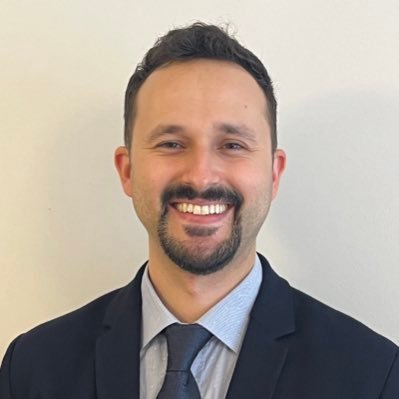Ankara’s Voice in Oncology: Dr. Erman Akkus on Research and Care
Speed-read
- One of the most promising young doctors shaping the future of oncology in Turkey, Dr. Erman Akkus, combines a passion for patient care with a dedication to scientific research. He is a medical oncologist at the Faculty of Medicine, Ankara University, one of the country’s most prestigious institutions.
- In Turkey, as in many countries, cancer prevention remains a critical but underutilized strategy. National cancer registries provide robust incidence and mortality data, yet translating these data into widespread public health action is inconsistent.
- Turkey is making progress, but data sharing and standardization remain areas for improvement.
- Most studies do not lead to immediate patient benefit, because translation from research to practice requires clinical trials, regulatory approval, and guideline integration. The sense of being “one step closer” is valid: every study builds the foundation for future therapies.
- The Pfizer-BioNTech COVID-19 vaccine was associated with improved survival in patients with metastatic colorectal cancer receiving bevacizumab, likely due to enhanced anti-tumor immune responses, although further research is needed to confirm these findings.
- Clinical trials rarely measure mental health or patient-reported outcomes systematically, but integrating these aspects is essential for truly patient-centered cancer care.
- Dr. Akkus and his colleagues investigated the development of fatty liver (hepatic steatosis) in survivors of testicular germ cell tumors (TGCT).
- Medicine is full of uncertainties and probabilities. Human biology is too complex to simplify by only data.
- Ankara has strong academic centers contributing internationally. Collaboration is improving, but greater integration into global clinical trial networks and stronger national registries would amplify impact. Supporting mentorship and research opportunities will sustain enthusiasm.
Ankara, Turkey’s capital, is not only the nation’s political center but also home to esteemed institutions such as the Faculty of Medicine at Ankara University, renowned for its excellence in education and research. The city plays a central role in the development of healthcare in Turkey, including the training and practice of specialists in various fields, such as medical oncology. Today, Turkey’s medical community includes approximately 1,340 practicing medical oncologists, contributing to the country’s growing expertise in cancer care and research.
Dr. Erman Akkus is a medical oncologist at the Faculty of Medicine, Ankara University, one of the nation’s most prestigious institutions. During his professional journey, he gained experience as a visiting researcher at the University of Oslo. Dr. Akkus completed his medical education at Ankara University, laying a strong foundation for his ongoing specialization and research endeavors.
His résumé is marked by numerous significant research contributions. He is among the authors of a study examining 30 years of experience involving 1,016 patients, aimed at understanding whether blood group incompatibility impacts the success of hematopoietic stem cell transplantation. The findings were presented in 2018 at a scientific conference in San Diego.
His work also includes individual clinical cases that are important for understanding rare but serious complications in oncology. For example, a 53-year-old female patient with metastatic melanoma was treated with ipilimumab, a drug that enhances the immune response against tumors and helps improve survival. After the fourth dose, she developed painful, red, and swollen nodules on her hands and feet, which were confirmed by biopsy as Sweet’s syndrome, a rare inflammatory skin condition sometimes triggered by medications or malignancies. The authors of the study, published in 2020, emphasize that ipilimumab can trigger Sweet’s syndrome, and clinicians need to be aware of this rare but serious adverse effect to respond promptly and adjust treatment appropriately.
Dr. Akkus has contributed to other studies highlighting clinically significant complications in oncology, emphasizing the importance of careful patient monitoring and individualized treatment. These include a 60-year-old male with metastatic colorectal cancer whose severe cetuximab-induced rash improved with home-prepared aloe vera, and a 62-year-old female with elevated CA72-4 tumor markers due to colchicine rather than malignancy, underscoring the importance of considering all medications and supplements in patient evaluations.
Cancer Care in Turkey, Prevention, Research, and Responsible Communication
According to the study, cancer is the second leading cause of death in Turkey. Many cancers are linked to modifiable lifestyle risk factors, such as tobacco use, alcohol consumption, obesity… Addressing these risk factors could potentially prevent 30%–50% of cancer cases and deaths. Are sufficient measures being taken in terms of prevention, and is this information communicated effectively to the public?
Dr. Akkus: In Turkey, as in many countries, cancer prevention remains a critical but underutilized strategy. Tobacco control policies have been relatively strong, yet smoking is still very common, and obesity, poor diet, and physical inactivity are rising public health challenges. National cancer registries provide robust incidence and mortality data, yet translating these data into widespread public health action is inconsistent.
Communication of risk factors is often fragmented — awareness campaigns exist, but sustained, evidence-based public health interventions (e.g., structured nutrition and exercise programs, obesity prevention, and alcohol regulation) are less developed. Greater integration between oncology, primary care, and public health systems is required. From an oncology perspective, prevention data should not only inform policymakers but also guide clinicians in survivorship counseling, reinforcing lifestyle modification as part of long-term care.
Cancer treatment in Turkey is more affordable than in many other countries. How does this affect the availability of data, and to what extent does treatment cost influence access to data for scientific research?
Dr.Akkus: Turkey offers relatively affordable cancer treatment compared to many Western countries, which increases patient inflow, especially from neighboring regions. This high patient volume enriches hospital registries and clinical data. However, affordability itself does not directly translate into better research unless robust infrastructure for systematic data collection, national cancer registries, and academic collaboration are in place. Turkey is making progress, but data sharing and standardization remain areas for improvement.
You frequently share scientific studies on social media, and I must say you are doing an excellent job. That is why I would like to ask: we see numerous important studies every day, yet oncology patients often do not benefit directly from them. Are there enough studies whose results can provide immediate advantages to patients? It seems that the sense of being ‘one step closer is always present.
Dr. Akkus: I believe that sharing enables us to discuss, learn, and produce new ideas. Indeed, most studies do not lead to immediate patient benefit, because translation from research to practice requires clinical trials, regulatory approval, and guideline integration. However, some areas, such as supportive care, survivorship, or treatment optimization, can change practice more quickly. The sense of being “one step closer” is valid: every study builds the foundation for future therapies. Lastly, besides the efficacy and benefit, we always need to be sure that the treatment is safe enough.
When it comes to the media, we often come across articles titled “10 Hidden Symptoms of Cancer.” I would like to ask you: in terms of media coverage, what aspects would you like to see improved?
Dr.Akkus: I agree that sensationalized lists of “hidden cancer symptoms” create anxiety without context. What would help is balanced reporting: focusing on prevention, early detection, lifestyle risks, survivorship issues, and real advances from clinical trials. Collaboration between medical experts and journalists could improve accuracy and relevance.
The Pfizer-BioNTech COVID-19 vaccine (mRNA-BNT162b2) and Colorectal Cancer
Dr. Akkus is one of the authors of a study, ‘Impact of SARS-CoV-2 mRNA-BNT162b2 Vaccination on Survival Outcomes in Metastatic Colorectal Cancer Patients Treated with Bevacizumab-Based Therapy. The study’s May 2025 abstract suggested that vaccination was associated with improved survival outcomes in metastatic colorectal cancer patients receiving bevacizumab.
Vascular Endothelial Growth Factor (VEGF) stimulates the formation of new blood vessels, a process known as angiogenesis. Tumors often produce VEGF to develop their own network of blood vessels and secure nutrients for growth. Bevacizumab blocks VEGF, preventing the formation of new blood vessels and making it more difficult for tumors to grow. The study included 92 patients treated with bevacizumab between June 2021 and October 2024. They were divided into a vaccinated group (n = 50) and an unvaccinated group (n = 42). The Pfizer-BioNTech COVID-19 vaccine was associated with improved survival in patients with metastatic colorectal cancer receiving bevacizumab, likely due to enhanced anti-tumor immune responses, although further research is needed to confirm these findings.
Bevacizumab is widely used in the treatment of metastatic colorectal cancer. Given that bevacizumab was approved in 2004, how might this accelerate further research? Additionally, how effective have vaccines been in this context, particularly from an oncology research perspective?
Dr. Akkus: Bevacizumab blocks VEGF-mediated angiogenesis, thereby inhibiting tumor vascularization. Beyond this anti-angiogenic effect, VEGF inhibition also modulates the tumor immune microenvironment: VEGF signaling promotes dendritic cell dysfunction, reduces T-cell infiltration, and favors immunosuppressive cell subsets. By normalizing tumor vasculature and relieving VEGF-driven immunosuppression, bevacizumab may create a more permissive setting for immune responses.
mRNA-BNT162b2 vaccination, although designed against SARS-CoV-2, induces strong systemic immune activation. This includes activation of type I interferon pathways and antigen-presenting cells. This could, theoretically, synergize with the immune-modulatory effects of bevacizumab. In our retrospective study, vaccinated patients had improved survival outcomes, and multivariate analysis suggested vaccination was an independent predictor. However, causality cannot be established, and confounding factors (e.g., better ECOG status, lower RAS mutation frequency in the vaccinated group) must be acknowledged.
Bevacizumab’s long-established approval (since 2004) and safety profile allow for quicker design of exploratory combination trials, including translational studies and prospective randomized trials. From an oncology research perspective, mRNA platforms are highly promising, and the immunologic effects we observed may stimulate further investigation into whether vaccines could serve as immune adjuvants in cancer therapy.
Do factors such as gender, immune status, or individual variability influence how people respond to the vaccine?
Dr. Akkus: Yes, vaccine responses vary across individuals. Age-related immunosenescence, gender differences (women often mount stronger humoral and cellular responses), underlying immune status, and concomitant therapies all influence outcomes. In oncology patients, chemotherapies or corticosteroids are known to blunt vaccine responses. Bevacizumab itself does not strongly suppress immunity, but its use in combination regimens can affect timing. Genetic factors, tumor biology (e.g., RAS mutation status), prior SARS-CoV-2 infection, and even microbiome composition may also contribute.
In our retrospective dataset, we observed baseline differences between groups, but detailed immune profiling (antibody titers, T-cell assays) was not performed. Prospective studies incorporating immunologic endpoints are needed to clarify how these variables shape vaccine effectiveness in cancer patients.
For example, a Tunisian study found that 15.5% of cancer patients declined the COVID-19 vaccination. On the other hand, there are claims that the vaccine may have contributed to an increase in cancer incidence, with terms like “turbo cancer” being mentioned. Based on your knowledge and experience, is the patient’s mental state—is sufficiently considered in research?
Dr. Akkus: Vaccine hesitancy among cancer patients has been reported globally, often linked to safety concerns, misinformation, or distrust. Addressing this requires clear risk–benefit communication and psychosocial support. The idea that COVID-19 mRNA vaccines cause an increase in cancer incidence or “turbo cancer” is not supported by high-quality evidence. mRNA vaccines do not integrate into the genome, and extensive surveillance data have not shown an excess in cancer incidence among vaccinated populations. Indeed, a lot of diagnostic procedures were conducted because of COVID-19 infection, which may increase cancer detection. The claims of “turbo cancer” generally stem from anecdotal reports. Nonetheless, long-term cancer registries continue to monitor outcomes.
Psychological factors are indeed crucial. Anxiety, depression, and perception of medical risk influence both treatment adherence and vaccine uptake. While psycho-oncology services are recommended in many centers, access remains uneven, particularly in resource-limited settings. Clinical trials rarely measure mental health or patient-reported outcomes systematically, but integrating these aspects is essential for truly patient-centered cancer care.
Fatty liver in survivors of testicular germ cell tumors
In a study published in early 2025, Dr. Akkus and his colleagues investigated the development of fatty liver (hepatic steatosis) in survivors of testicular germ cell tumors (TGCT). The study included 106 patients, and fatty liver developed in 57% of them during a median follow-up of approximately four years, with most cases persisting over time. The risk of developing fatty liver was higher in patients with a higher baseline body mass index and those diagnosed at the S0 stage of the disease, which represents the earliest stage without metastases. Fatty liver typically appeared approximately 45 months after diagnosis. The study emphasizes that monitoring and management of fatty liver should be incorporated into long-term survivorship care plans for TGCT survivors.
“In this study, we describe and characterize the hepatic steatosis development among TGCT survivors. To the best of our knowledge, this is the first study in the literature that assesses this issue.” Why has there been so little research on this topic? These data are very important. For example, could the results of studies like this contribute to prevention strategies or patient guidance?
Dr.Akkus: Research on late metabolic complications in testicular germ cell tumor (TGCT) survivors has been limited for several reasons. TGCT is a relatively rare malignancy, and long-term survival rates are excellent, meaning survivorship cohorts large enough for systematic study are not always available. Additionally, most research has historically focused on cardiotoxicity, nephrotoxicity, fertility, and secondary malignancies after platinum-based chemotherapy, while hepatic steatosis (HS) has received less attention. Our study suggests HS is both common (57%) and persistent (77%) in TGCT survivors, particularly in those with elevated baseline BMI. These findings highlight the importance of including metabolic health and liver monitoring in survivorship care plans. The next steps should include prospective, multicenter studies with metabolic profiling and lifestyle intervention arms.
The implications are twofold. For oncologists: Awareness of hepatic steatosis as a late toxicity can guide follow-up imaging, laboratory evaluation, and referrals to hepatology or metabolic clinics. For patients: Knowledge of this risk may motivate lifestyle modifications (diet, exercise, weight control) and enable earlier detection and management. Thus, the study contributes to both prevention and patient guidance by expanding the scope of survivorship care beyond traditional cancer-focused outcomes.
A decade in medicine: reflections on oncology and the next generation
Which of your studies is your favorite, and why?
Dr. Akkus: Not easy to answer, but I can mention two of them. The first one is “Adjuvant chemotherapy compared to observation in resected biliary tract cancers: Survival meta-analysis of phase-III randomized controlled trials”. The reasons are: 1) I think this study showed that our current adjuvant chemotherapy for biliary tract cancers provides a short-term benefit, but we need sustained cure benefits in a non-metastatic setting. 2) I liked the methodology and design that we used.
The other study is “Stage-specific characterization of ‘early-onset colorectal cancer’: Localized and synchronous metastatic disease”. The reasons are: 1) Early-onset cancers (generally means a cancer diagnosis before the age of 50) are globally increasing and alarming. And this study was the first one from our country, as far as we know. 2) Unlike the other studies in the literature, we specifically focused on resectable localized and metastatic stages separately.
Since completing your studies, how has your approach to medicine changed?
Dr. Akkus: A few months later, I will be completing my 10th year as a practicing physician. I am a dedicated science believer and always searching for the evidence. However, I learn by experience that medicine is full of uncertainties and probabilities. Human biology is too complex to simplify by only data. Over time, I have learnt to look at the whole patient: their needs, social conditions, quality of life, survivorship, prevention, and long-term health. Research reinforces that oncology is not just about prolonging life but also about making that life healthier and more fulfilling. Therefore, medicine indeed is an interpersonal relationship between physicians and the patient and their families.
Ankara contributes to cancer research internationally. I would like to ask whether there is enough collaboration, what could be improved, and whether younger generations are sufficiently interested in pursuing careers in medicine.
Dr. Akkus: Ankara has strong academic centers contributing internationally. Collaboration is improving, but greater integration into global clinical trial networks and stronger national registries would amplify impact. As for younger generations, interest in medicine remains high, though challenges such as workload and burnout are real. Supporting mentorship and research opportunities will sustain enthusiasm.
The conversation with Dr. Akkus shows that oncology goes far beyond the boundaries of therapy itself. His professional journey and research demonstrate that medicine is not only about prolonging life, but also about shaping it, improving it, and humanizing it. A crucial part of this lies in the way knowledge is shared – both among experts and with the wider public. What is needed is responsible communication that emphasizes prevention, early diagnosis, healthy lifestyle choices, and genuine scientific progress. As Dr. Akkus highlights, sharing scientific studies does not always bring immediate benefits to patients, but it provides the foundation for the future of medicine. Upon these foundations, the next generations of physicians and researchers will continue to build.
Image: Dr. Erman Akkus


